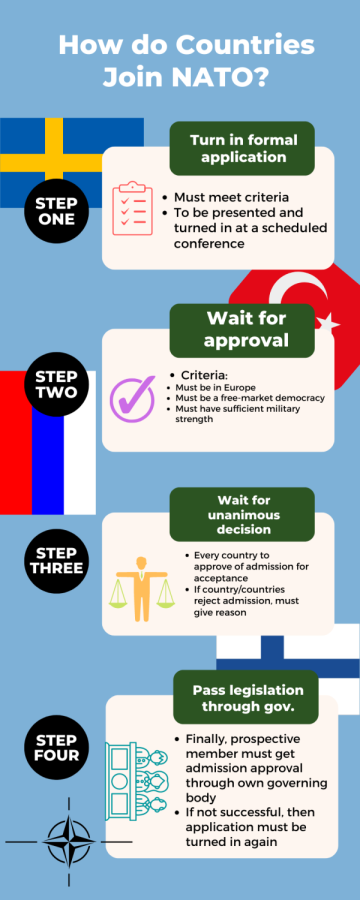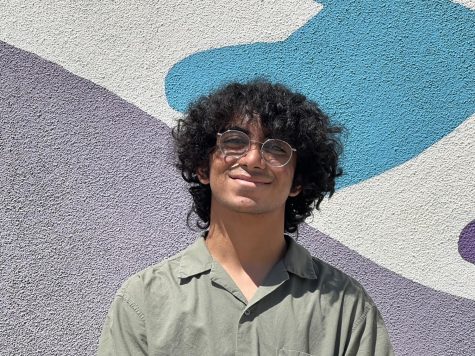Finland and Sweden apply for NATO membership, and russia’s response is one of resignation
The process for joining NATO is not an easy one.
May 30, 2022
As the war in Ukraine escalates and more countries are becoming involved with the condemned conflict, Russia’s threats of global war have started to lessen in impact. As an example of this power shift, Finland and Sweden, Scandinavian countries indirectly coerced by Russia to not affiliate themselves with Western Europe in any way, have recently applied for NATO membership.
In fact, the nations of Finland and Russia have a particularly tumultuous relationship, as the former used to be a province of the latter up till 1918, when the Bolshevik Revolution divided Russia over political affiliations and the Finns declared their independence. Even after a short and bloody conflict with Russia during World War II, Finland has tried to maintain a semblance of balance between Europe’s Eastern and Western blocs since the Cold War.
However, Russia’s unjustified invasion of Ukraine and the increasing brutality of its war crimes have seemingly convinced both Finland and Sweden to abandon any hope for neutrality, as they have applied for NATO membership on top of imposing harsh sanctions on the East Slavic country.
“Due to both Scandinavian countries siding with Western Europe, Russia will feel that they have more people against them, so they’d put out more of their troops in Ukraine in a bid to finish the war as soon as possible,” said Ryken Mak (‘23).
The addition of two more non-Western European nations signifies a fortification of relations between European nations in their collective retaliation against Russia.
“It’s definitely going to improve relationships between European countries- It’s going to unify them….with the international community behind NATO and behind the support for Finland and Sweden joining NATO, Russia doesn’t have a lot of support,” said Model UN club officer Ziyan Liu (‘24).
The Russian response to global opposition has been disconcerting. Russian authorities have refused to take direct action, and Putin declared in a public statement that “Finland and Sweden’s desertion was inevitable.” However, people still believe Russia will retaliate in some way or another, considering its history of violent unpredictability.
“It’d be unwise for Putin to retaliate against Finland and Sweden for their intent to join NATO, but he is a very unpredictable figure in modern history. If he does choose to pursue action…a global war may ensue,” said Liu.
While Finland and Sweden have been welcomed into NATO by other members, admission into the treaty organization is only eligible when all members vote for it. And thus another hurdle appears in the way of the Scandinavian countries as Turkey voices its complaints, citing the presence of PKK- a Kurdish terrorist orgnization- members in Sweden as a reason for their unpreparedness in joining NATO.
However, experts believe Turkey’s President Recep Tayyip Erdoğan is merely posturing to improve his worsening domestic reputation. According to senior resident scholar Hussein Ibish in an interview with CNBC, Τurkey “will not ultimately seek to block Finland and Sweden from joining the organization.”
“Because Turkey already is on the precipice of leaving NATO because of its alliance with Russia, I don’t think it will stretch this affair out any longer than necessary,” said Liu.
With the addition of Finland and Sweden into NATO, European relations have begun to symbolize both united fronts and souring bonds. Russian and Western European relations have reached a point of contention unprecedented since the Cold War, and Eastern Europe is rethinking its position in the middle of it all- which could turn out to be the tipping point in the conflict, as other countries choose NATO over Russia.
It’s quite evident that European affairs will remain at a high boiling point for the rest of the year and beyond. Amidst such global tension, change is starting to take shape, and perhaps absolute power will switch hands in the next few years to come as Russia’s influence over former Soviet blocs worsens and its economy crumbles under the weight of hefty sanctions.





